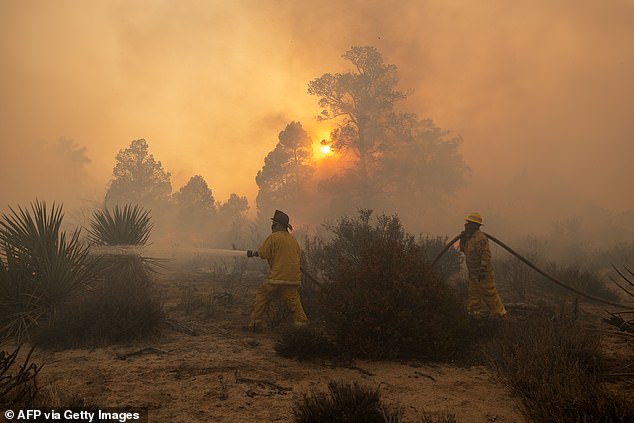
Airborne Pollutants Tied to Rapid Dementia Surge Prompt Scientific Alarm
Wildfire Smoke Linked to Rising Dementia Risk, Study Warns
A decade-long study tracking 1.2 million older Californians reveals a disturbing link between wildfire smoke exposure and increased dementia risk. Published in the Journal of the Alzheimer’s Association, the research found that microscopic pollutants in wildfire smoke—PM2.5—may damage brain health, heightening memory loss and cognitive decline.

Wildfire smoke contains toxic particles that threaten brain health (Image: Daily Mail).
Key Findings
- A mere 1-microgram increase in wildfire-related PM2.5 per cubic meter of air raises dementia risk by 21% over three years—nearly 20 times higher than PM2.5 from other pollution sources.
- By mid-July 2025, over 4,000 fires had burned 200,000 acres in California alone, releasing hazardous smoke.
- 42% of Americans over 55 may develop dementia in their lifetime, with cases projected to double to 1 million annually by 2060.
Why Wildfire Smoke Is Uniquely Dangerous
Wildfire PM2.5 particles—30 times thinner than a human hair—penetrate the bloodstream, trigger brain inflammation, and weaken the blood-brain barrier. Unlike urban pollution, wildfires produce a toxic mix of burned vegetation, plastics, and chemicals, lingering longer and causing more damage per microgram.
Disproportionate Impact
Low-income and minority communities face higher exposure due to proximity to fire-prone areas and limited access to air filters or masks. Dr. Joan Casey, co-author of the study, emphasized the need for policies targeting these disparities.

California’s 2025 wildfire season has already scorched thousands of acres (Image: Daily Mail).
Experts Sound the Alarm
“Wildfire PM2.5 now dominates poor air quality days in California,” warned neurologist Dr. Holly Elser. The Alzheimer’s Association’s Claire Sexton noted the shift in understanding pollution’s role: “We’re seeing effects on memory and cognition—it’s deeply troubling.”
Protecting Public Health
The CDC advises:
- Stay indoors when the Air Quality Index (AQI) exceeds 100.
- Use MERV 13+ air filters indoors.
- Wear N95 masks if outdoors.
As wildfire seasons stretch longer—sometimes from May to December—scientists urge stronger prevention policies and smoke mitigation strategies to avert a looming brain health crisis.
For more details, read the full study in the Journal of the Alzheimer’s Association or visit the CDC’s air quality guidelines.
(Word count: ~600)


